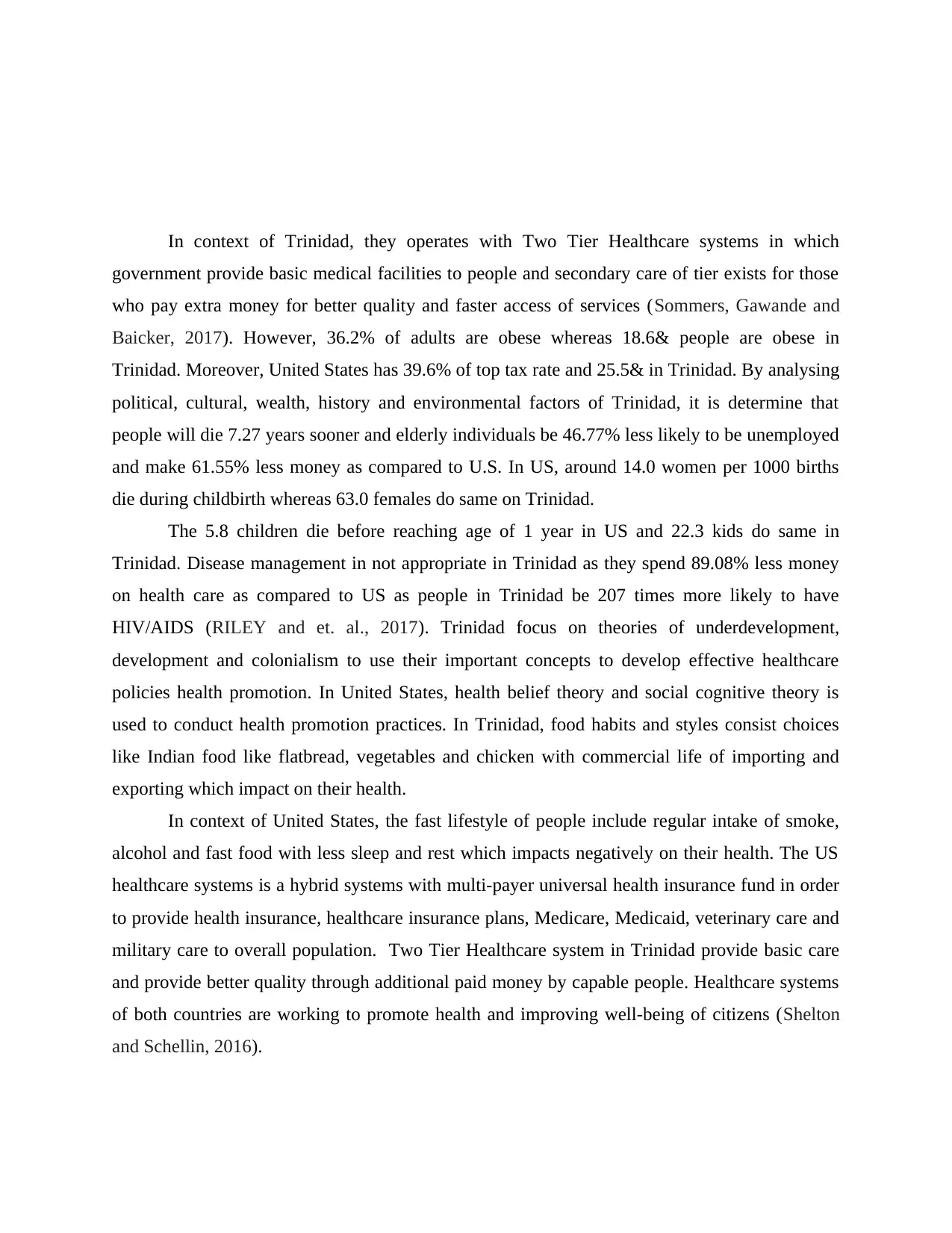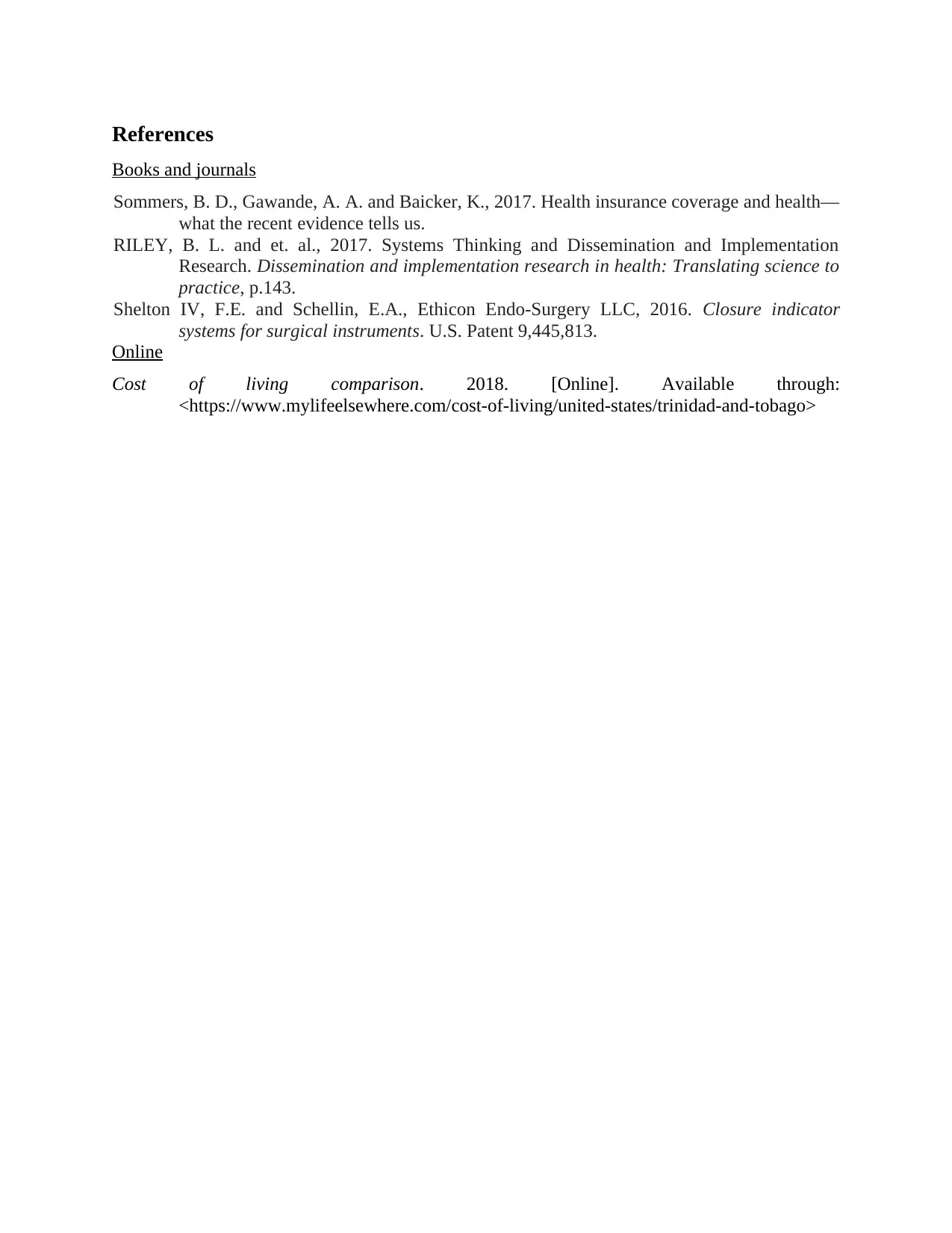Comparative Analysis of Healthcare Systems: Trinidad vs. United States
VerifiedAdded on 2020/12/09
|3
|523
|215
Report
AI Summary
This report provides a comparative analysis of the healthcare systems in Trinidad and the United States, focusing on various aspects such as health outcomes, economic factors, and policy implications. The study highlights the differences in healthcare approaches, including the two-tier system in Trinidad and the hybrid system in the US. It examines factors such as obesity rates, life expectancy, and mortality rates to assess the effectiveness of each system. The report also delves into the influence of cultural and lifestyle factors, like dietary habits and work-life balance, on the health of the populations. Additionally, the study explores the impact of government policies, healthcare spending, and access to care on public health. The report references several studies and resources to support its findings, including the impacts of health insurance coverage, systems thinking, and the use of health promotion theories like health belief and social cognitive theories in the context of Trinidad and the United States. Overall, the report aims to offer a comprehensive understanding of the strengths and weaknesses of each healthcare system and their impact on the well-being of their respective populations.
1 out of 3










![[object Object]](/_next/static/media/star-bottom.7253800d.svg)